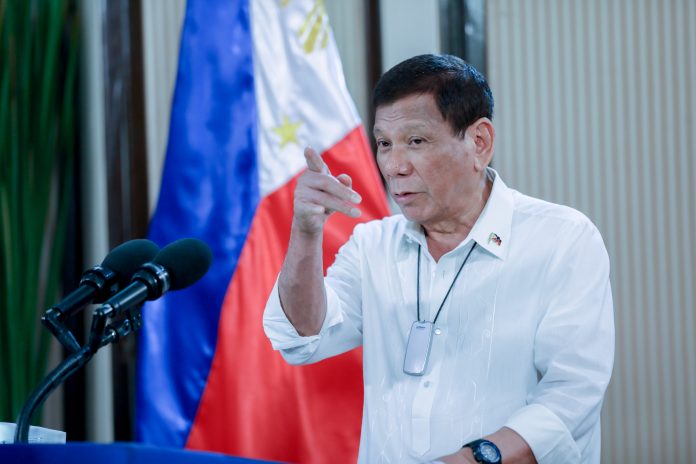After President Rodrigo Duterte’s penultimate State of the Nation Address on July 27, we get the distinct feeling that the nation would be battered by two more years of increasingly tyrannical rule that can only bring our hard-won democracy to its knees.
If there’s one thing that characterizes Duterte’s four years in office, it’s his dogged determination to concentrate all political power in his hands and to throw out the window all pretense to democratic governance.
And in the remainder of his six-year term that ends on June 30, 2022, we cannot help but imagine an apocalyptic scenario where he would continue to exercise authoritarian power, perhaps even declare martial law amid growing opposition to one-man rule, abolish the 1987 Constitution with the armed forces and the police behind him, cancel the 2022 presidential polls, and declare himself president-for-life.
An extreme scenario, perhaps, but not impossible at all.
If the past four years teaches us any lesson, it’s this: with Duterte in power, expect the worst.
Did we ever expect him to launch a take-no-prisoners drive against illegal drugs that would lead to the killing of at least 6,000 suspected drug pushers and, according to claims by human rights groups, as many as 20,000 supposedly shot dead by vigilante groups since 2016?
Did we expect a sitting senator who had criticized his bloody war on criminality when he was still mayor of Davao City to end up in jail on trumped-up charges of conspiring to traffic in illegal drugs based on false testimonies of convicts?
And did we expect him to shut down the ABS-CBN media conglomerate for not airing his campaign propaganda in the 2016 presidential polls and for taking a negative view of his war on illegal drugs?
Given his track record so far at the helm of this nation, can we expect things to change for the better in the remainder of his term?
If, as Lord Acton once said, power corrupts, and corrupts absolutely, we see no respite from the dangerous drift toward dictatorship that we have seen in the past four years.
The bloody war on drugs started even before Duterte formally assumed the presidency in 2016, with the police transforming the entire country into a killing field of mainly small-time pushers and addicts.
Duterte tried to make peace with the communist rebels soon after he took office, even appointing some of their leaders to key government positions. But since there was no bilateral ceasefire, the political negotiations broke down while fighting in the battlefield continued. The government has launched all-out war against the communist rebellion, even targeting legal groups, including the Church, clamoring for basic reforms.
Duterte correctly launched all-out war against Islamic militants in Marawi in southern Philippines in 2017. But the intense fighting and bombing runs by the military reduced the city to ruins. Three years later, Marawi has yet to be rebuilt, and displaced residents still living in temporary settlements. Duterte did not even mention Marawi rehabilitation as a priority in his latest report to Congress.
The government’s response to the COVID-19 pandemic has been extremely harsh, with armored personnel carriers equipped with .50 caliber machine-guns patrolling areas under lockdown to strike fear in the hearts of residents. The police have been overzealous in implementing health protocols, with indiscriminate arrests of those not wearing face masks or maintaining social distancing even as the healthcare system, already burdened by allegations of widespread corruption, can hardly cope with the daily increase in coronavirus cases.
Even as the pandemic has claimed more lives and triggered an economic crisis that has led to job losses and the closure of many micro, small and medium enterprises, the government has also moved to curtail legitimate dissent with an anti-terrorism law that is likely to be abused since it allows warrantless arrests and prolonged detention of those it considers abetting or inciting terrorism.
Critics warn that we may be seeing the return of the Marcos-era dictatorship with Duterte’s threat to expropriate companies owned by so-called “oligarchs” whom he claims have been exploiting consumers with high power and water rates and inefficient telecommunications services.
This perceptible drift toward out-and-out authoritarian rule through intimidation and threats will plunge the nation into another dark era of tyranny that is likely to divide the nation, foment political unrest and set back gains made in economic development.
Ernesto M. Hilario writes on political and social justice issues for various publications in the Philippines. The views and opinions expressed in this article are those of the author and do not necessarily reflect the official editorial position of LiCAS.news.









